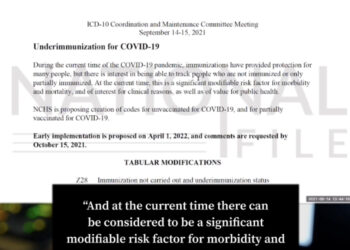Last Updated on November 2, 2020
In a move that could very well threaten the careerists of the Deep State, President Trump on Friday signed an executive order that makes it easier to both hire and fire federal workers, putting poor performing government employees on notice.
The executive order creates a new federal employee classification, “Schedule F.” Under Schedule F employment, federal agencies will have more latitude to both to hire and fire “employees in confidential, policy-determining, policy-making, or policy-advocating positions.” Those especially affected by this order are those federal employees who perform poorly.
This new designation covers many of the mid-level to upper-middle managerial positions that are commonly referred to as “careerist” positions. Many of those who analyze government see these “untouchable” positions as adding to the bureaucracy of what many call the “Deep State.”
Employees who are hired for these positions are typically not subjected to administerial change that comes with transitions that take place after presidential elections. This allows people in those positions to have an over-weighted influence in “making and designing policy details and rules with little or no public accountability.”
President Trump, as well as many government watchdog groups, has repeatedly spotlighted the bureaucracy of the Deep State and how it allows those with dedicated ideologies to impose their will on entire administrations that don’t align with their politics.
Great News! @RealDonaldTrump bureaucracy reform would hold tens of thousands Deep State "career employees" more accountable to the American people. Most significant federal bureaucracy reform in decades. https://t.co/88DobTmn8V via @whitehouse
— Tom Fitton (@TomFitton) October 23, 2020
In a statement that was released with the order, the White House said that before the order removing careerists in the federal government who perform poorly, especially from critical positions, was “time-consuming and difficult.” These moves most often took between six months and a year.
The order states, “agencies need the flexibility to expeditiously remove poorly performing employees from these positions without facing extensive delays or litigation.”
As part of the order. federal agency heads have until January 20, 2021, to determine which positions will receive Schedule F designations.





















